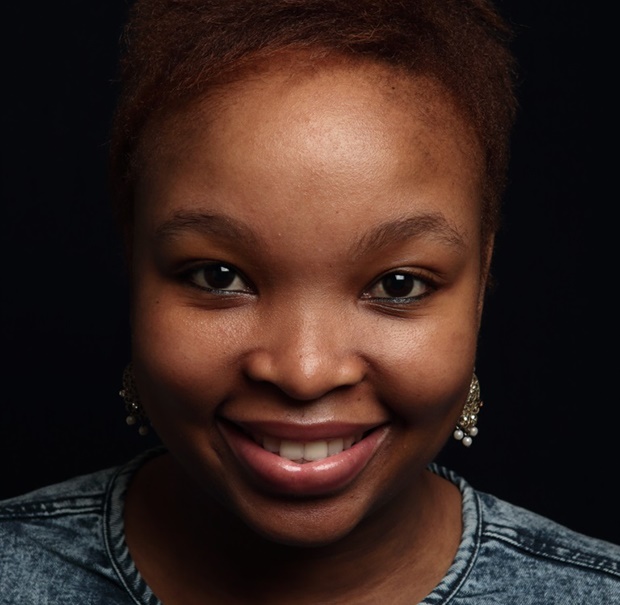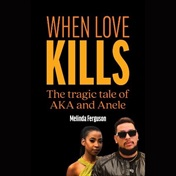
Loneliness, desire, love, obsession, sex, sexuality, volatility ... Don’t let the pretty cover fool you.
What is on the pages of Chwayita Ngamlana’s debut novel, If I Stay Right Here, will challenge, teach and enlighten you.
Here is a window into a passionate relationship between two women, Shay and Sip, and to say that it turns sour, complicated and abusive doesn’t begin to cover it.
But I’m not going to give away the story, except to say we see too few nuanced works about lesbian love on our bookshelves.
Over the phone, the bubbly Ngamlana describes her style of writing much as I imagine her – experimental and innovative.
She vibes with anything that challenges boundaries and escapes tradition.
Born and raised in the colonial edifice of Grahamstown, the young novelist started writing at the tender age of 10.
After completing her degree in music, she pursued her master’s in creative writing.
Her novel, she says, was inspired by a difficult relationship she went through while at varsity. She boldly decided to base her thesis on this dark chapter of her life.
The thesis in turn became the manuscript that pioneering young black publishing house BlackBird Books would release in the form of a novel.
Before challenging herself to write the book, Ngamlana dabbled with poetry and self-published her writing on her blog.
“I think I’m more of a novelist than a poet,” she says today.
What inspired the novel?
We had to complete a [creative writing] thesis and I decided to write about my relationship.
I also looked into documentaries and read a lot of stuff that inspired me.
It was a lot of things, but mainly the abusive or destructive relationship I was in at the time.
How has the book been received so far?
There are so many reviews online. I expected at least one of them to be bad, but I haven’t received a negative review since the book came out in June.
It has been surprising.
Why did you think Shay and Sip’s story is an important one to tell?
It’s based on real-life situations and I wanted to shed light on the LGBTQI world and the “normality” of the people who are part of this community.
We’re always labelled as “other” and different.
I wrote my book as a way of saying, look I’ve been in relationships with both men and women and it’s actually pretty much the same.
Everyone is human, everyone is trying to find love. When different sexes are attracted to each other, that’s all it is and when the same sexes are attracted to each other, that’s all it is.
The love part and all the struggles that come with the relationship stay the same.
The book is very frank and wears its heart is on its sleeve. Why did you choose this style?
I don’t like structure because that’s not the true reflection of reality.
I’m inspired by realistic things, realistic characters and events, so I tried my best to mimic that.
I didn’t want a traditional beginning, middle and end. I captured moments and then arranged them to give the reader an idea of the progression within the story.
Many of the names seem like nicknames and are not race specific. Why did you make this choice?
I didn’t want people to think this is a black, coloured, Indian, Chinese or whatever story.
I think the blackness comes through because my ex and I are black, but I didn’t write it thinking this is a black story.
I was very conscious of not making the names too race specific and I didn’t want to make the situations and the environments too race specific, so that everyone could relate to the story.
You tackle hard-hitting and taboo themes like the rape of lesbians...
I felt it was important because the person I was with, my ex, had gone through something similar.
It’s a huge problem in South Africa, where “corrective rape” is a reality, especially in the townships and especially with people who identify as “butch lesbian” or “stud”.
So it was very important for me to highlight that because it added to our issues and our relationship.
I absolutely had to write about that because it is important; people are getting killed.
Intimate partner violence in same-sex relationships is not commonly spoken about.
It’s important because domestic violence is such an issue in South Africa.
It happens with straight couples. It’s become a norm and it’s disturbing.
I wanted to say that it’s not a black and white situation, it’s a grey area and being able to leave a relationship is not as clear as people who are on the outside think it is.
I wanted to make people aware of what happens and the gradual progression of the physical violence.
There’s love and manipulation that goes with the love, and sex.
I tried to portray as well as I could how it develops. I wanted to educate people, especially since I went through it and I had friends that didn’t understand.
Was it your intention to make readers feel uncomfortable?
Real issues often make people uncomfortable.
People usually feel uncomfortable because they see themselves in the characters or in the story and they don’t want to face that side of themselves.
It wasn’t an intentional thing as in I’m going write something that’s uncomfortable.
I’m writing something that is true to me and that’s true to reality.
In reality, obviously, people are going to become uncomfortable because it’s not a fairytale situation, it’s not a happy ending.
It just is. There is no sugar coating, there’s no soft landing, but there’s also a bit of creativity in there.
That represents my style as a writer and I will continue to write in that same style that makes people uncomfortable.
What do you hope people will take away from this book?
Abuse is not straightforward, it’s not a black and white situation.
I’m hoping people will understand the whole process and that it’s not a “dumb” or “intelligent” thing.
People who haven’t been through this will look at people in abusive relationships and say I’m too smart to be there.
I am a well-educated person who was in a relationship like that and I fell into it at the age of 27.
It’s about manipulation and love. When you love someone you’re willing to do anything and everything.
That’s the main takeaway from the book.




 Publications
Publications
 Partners
Partners
















